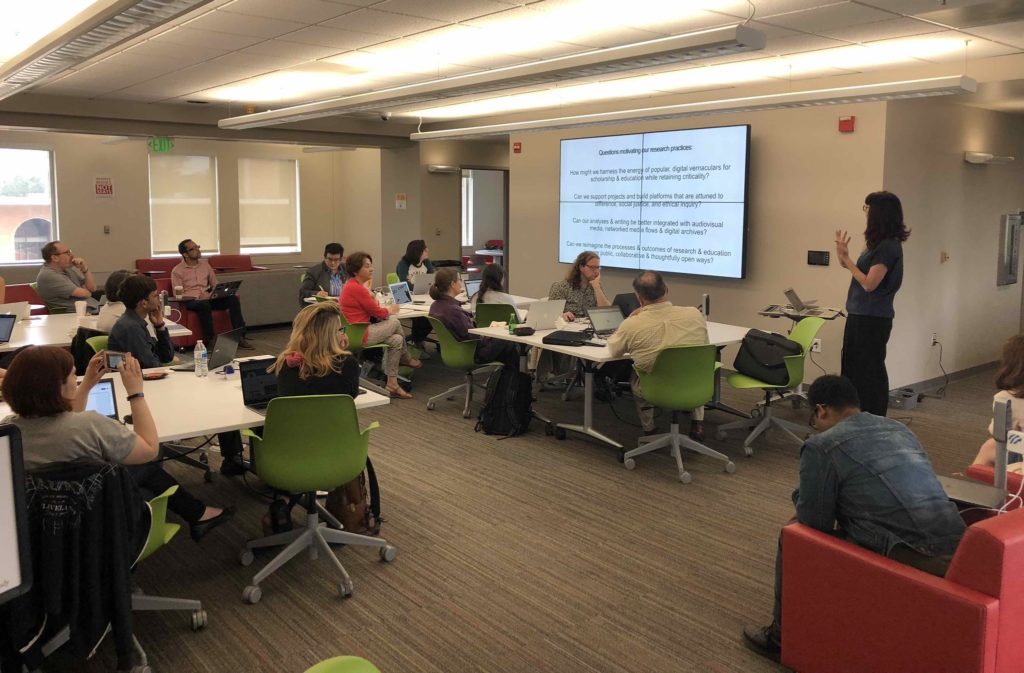
Scalar Outage (cont.)
Scalar will be unavailable throughout the summer due to a set of protracted circumstances that have significantly impacted our planned server migration and system updates. We recognize the importance of Scalar to many ongoing projects and sincerely appreciate your patience as we work to restore service. Updates on progress and availability will be shared as they become available.
Update 6/23/25: Scalar content is loading normally now, but saving content is still slow, and additional metadata features have been disabled. This means that if you save a page or media item that has additional metadata beyond the standard Scalar fields, it will be removed on save (if this occurs, you can use the “All versions” link at the bottom of the page to roll back to the prior version and restore the metadata). We’re continuing to troubleshoot. Note that this only affects Scalar projects at scalar.usc.edu, and not those hosted elsewhere.
Scalar Outage
Scalar is currently down due to unexpected technical issues. Our team is actively working to resolve the problem and restore service as quickly as possible. We appreciate your patience and will share updates as soon as they’re available.
Announcing Scalar 2.6 — and Lenses!
We’re thrilled to announce the launch of Scalar 2.6, featuring Lenses — a whole new way to explore relationships between content in Scalar projects. Lenses allow you to dynamically search and visualize Scalar content in a wide variety of ways. For example, a lens can map all pages that are geo-tagged to within 100 miles of Tokyo, diagram all of the media items tagged “post-structuralism”, or draw a word cloud of the contents of every page the reader visited in the last week. Lenses can be embedded in a page using the Lens widget, and the content they return can be exported as CSV files. Any user can create new private lenses in any Scalar book, opening up new possibilities for research in Scalar publications.
The impetus behind Lenses came from scholars Kate McDonald (UC Santa Barbara) and David Ambaras (North Carolina State University) as part of their Bodies and Structures project, which they describe as “a platform for researching and teaching spatial histories of Japan, its empire, and the larger worlds of which they were a part.” Seeing the potential for an expanded suite of visualization features to unlock new avenues of research, McDonald and Ambaras collaborated with Scalar team members Craig Dietrich and Erik Loyer to conceive the Lenses concept, which ultimately received funding in the form of a grant from the National Endowment for the Humanities.
To see Lenses in action, check out this Twitter thread showing various examples in the USC Libraries project Mirrors and Mass: Wayne Thom’s Southern California. For more details about Lenses and how they work, visit the Scalar documentation.
We can’t wait to see what you’ll do with Lenses!
The Scalar Summer Institute is coming!

Join the Scalar team for a USC Libraries Scalar Summer Institute this July 12-16, 2021. This free, five-day workshop is designed for librarians and others who wish to support the use of Scalar for born-digital scholarship and cutting-edge, collections-based digital pedagogy on their campus as well as those who wish to develop their own projects showcasing institutional collections.
Scalar Webinars
The Ahmanson Lab at USC Libraries is offering a series of free Scalar webinars this summer.
Introduction to Scalar: July 7, 11am-1pm (PT) – CLOSED/FULL
This webinar will cover basic features of the platform; a review of select Scalar projects and use cases; and a hands-on introduction to media, annotations, paths, and tags.
Intermediate Scalar: August 4, 11am-1pm (PT) – CLOSED/FULL
This webinar will delve into more advanced topics including the effective use of structure, metadata, widgets, and layouts.
Scalar Institute, Summer 2020

Join the Scalar team June 15-19 for a weeklong summer workshop at USC Libraries.
This five-day workshop is designed for librarians and others who wish to support the use of Scalar for born-digital scholarship and cutting-edge, collections-based digital pedagogy on their campus as well as those who wish to develop their own projects showcasing institutional collections. The workshop will provide attendees with comprehensive training in Scalar, including basic and intermediate sessions in the platform as well as training, not offered anywhere else, on Scalar’s new editorial and copy-editing feature-set. The workshop will also include advanced sessions on collections integration with Scalar; enhanced archiving of Scalar projects; use of Scalar’s API for experimental works; and setting up custom Scalar installations.
Attendees supporting Scalar at their institution will come away from this weeklong workshop with in-depth strategies and a set of robust resources for assisting faculty and students with the technical, structural, editorial, and design decisions vital to Scalar projects. Attendees who wish to use Scalar for their own project should come prepared with material, as they’ll be guided by the Scalar team, with collaborative whiteboarding sessions and one-on-one design meetings, in the development of their project while in residence at the workshop.
The Ahmanson Lab is located in the Libraries at the University of Southern California (USC). USC sits at the center of Los Angeles, a vibrant city with rich resources in arts and culture, including the Getty Museum and Huntington Library.
You can see the full details, costs, and a schedule for this workshop here.
To join us this summer, please complete the online application by April 21, 2020.
Have questions? Contact Curtis Fletcher at cfletche@usc.edu.